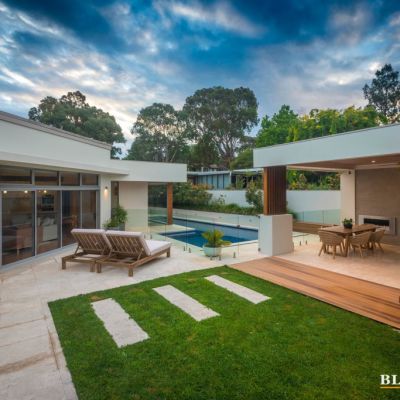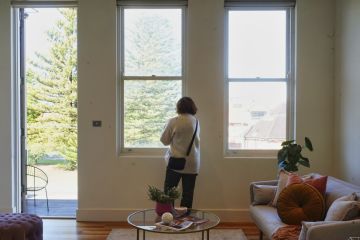The time it takes for ACT first-home buyers to save a home deposit shorter: Domain report
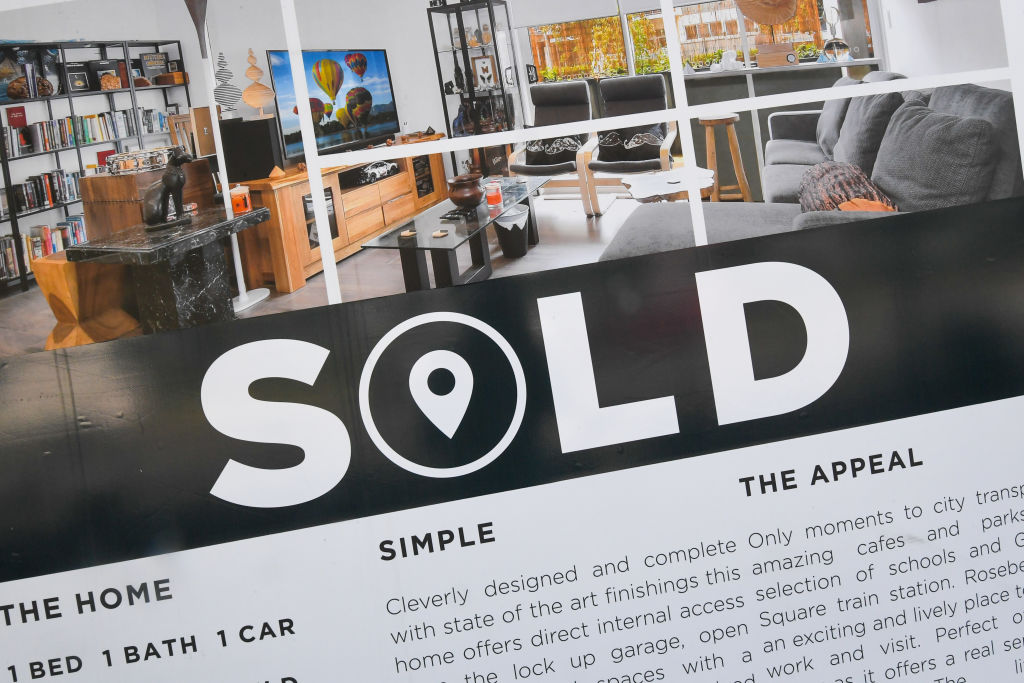
The dream of calling something home, sweet home may not seem a distant dream for Canberra first-home buyers as a new Domain report reveals the time it takes to save for a home deposit has plummeted.
It now takes six years to save a 20 per cent deposit for an entry-priced house in Canberra – this is 13 months shorter compared to this time last year, according to the Domain First-Home Buyer Report 2023, released on Tuesday.
For those looking to buy a unit, the time to save was reported as three years and seven months, a three-month reduction compared to this time last year.
The time to save for a 20% deposit on an entry-house for a couple aged 25-34.
Time to Save
2023
(Feb-23)Pre-cash rate hikes (Apr-22)
A year ago
(Feb-22)Pre-pandemic
(Mar-20)5 years ago
(Feb-18)
Sydney
6y 8m
8y 1m
7y 9m
6y 0m
6y 4m
Melbourne
5y 7m
6y 6m
6y 4m
5y 9m
5y 9m
Brisbane
4y 0m
5y 2m
4y 11m
4y 4m
4y 2m
Adelaide
4y 9m
4y 10m
4y 8m
3y 10m
3y 9m
Perth
3y 7m
3y 9m
3y 8m
3y 4m
3y 8m
Hobart
5y 8m
6y 1m
6y 0m
4y 3m
3y 6m
Darwin
3y 6m
4y 5m
4y 3m
3y 5m
3y 4m
Canberra
6y 0m
7y 2m
7y 1m
5y 0m
4y 10m
Combined capitals
5y 3m
6y 2m
6y 0m
4y 6m
4y 3m
Combined regionals
3y 10m
3y 11m
3y 10m
3y 3m
3y 2m
Australia
4y 11m
5y 7m
5y 5m
4y 2m
4y 0m
Canberra ranked as the city with the second-longest time to save a deposit, after Sydney, where it takes buyers six years and eight months for a house and four years and seven months for a unit.
The findings are based on a couple aged between 25 and 34 years old earning an average income and assumes they can save 20 per cent of their pay in a standard online savings account. The 20 per cent deposit is based on the 25th price percentile of Canberra.
The time to save for a 20% deposit on an entry-unit for a couple aged 25-34.
Time to Save
2023
(Feb-23)Pre-cash rate hikes (Apr-22)
A year ago
(Feb-22)Pre-pandemic
(Mar-20)5 years ago
(Feb-18)
Sydney
4y 7m
5y 3m
5y 3m
5y 4m
5y 7m
Melbourne
3y 7m
4y 3m
4y 3m
4y 3m
4y 2m
Brisbane
3y 5m
3y 7m
3y 5m
3y 4m
3y 6m
Adelaide
3y 2m
3y 1m
3y 0m
2y 7m
2y 11m
Perth
2y 3m
2y 6m
2y 5m
2y 5m
2y 8m
Darwin
2y 6m
2y 9m
2y 8m
1y 11m
2y 4m
Hobart
–
–
–
–
Canberra
3y 7m
3y 10m
3y 10m
3y 5m
3y 5m
Combined capitals
3y 9m
4y 1m
4 y 0m
3y 5m
3y 4m
Combined regionals
3y 1m
3y 3m
3y 1m
2y 10m
2y 10m
Australia
3y 7m
3y 10m
3y 9m
3y 3m
3y 2m
Domain’s chief of research and economics Dr Nicola Powell attributed the drop in the time it takes to save for a home deposit in the capital to three factors.
“The first being house prices in that entry price point fell by 6.6 per cent [in Canberra],” she said.
“While we have seen interest rates increase, that has also improved interest incurred on savings, and we have seen better wage growth.”
The report found that first-home buyers in Canberra were facing the second most severe mortgage repayments in the country, sitting at 45.3 per cent of their income and just behind Sydney’s 50.9 per cent.
In Canberra currently, the entry price for a house is $780,000 while the price of a unit is $450,000.
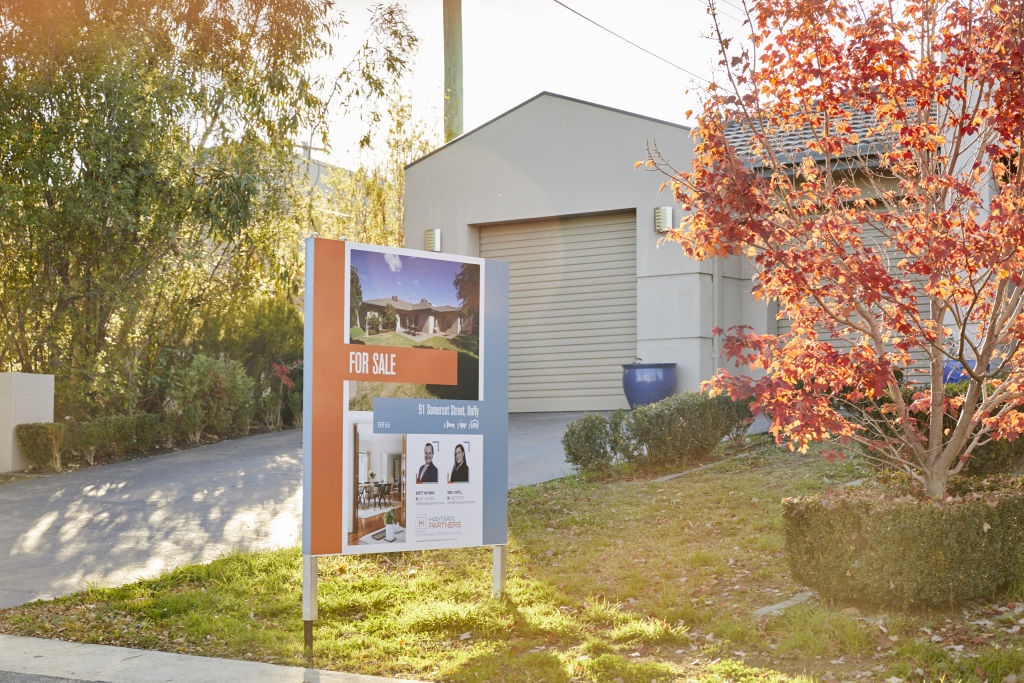
“We have seen one of the most aggressive rate hike cycles that we have seen from the RBA in recent times and the mortgage rate landscape has changed dramatically,” Powell said.
“However, the percentage of income needed to pay back a unit in Canberra is below the stress threshold at 26.1 per cent, so that’s a really positive narrative.”
These statistics show that it’s by no means easy to get into the market. Canberra residents Charlee Cremerius and Andrew Crilly, who purchased a home together in April 2022, consider themselves among the lucky ones.
Crilly was previously considering buying a home with his brother, and the pair had been approved for a loan. However, they didn’t have much luck and as interest rates increased, their mortgage pre-approval dramatically decreased.
He and Cremerius then decided they would like to buy together, and started their search for a home. By this point, they’d been saving for more than three years between the two of them.
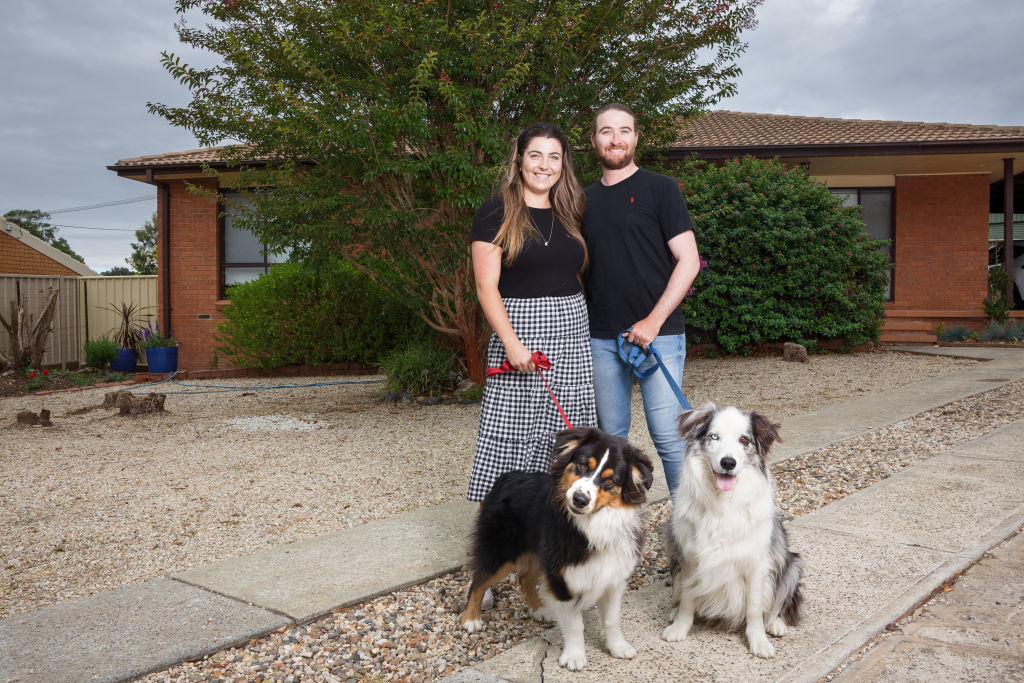
“We were initially looking for a townhouse on a smaller block to get into the market but then we actually came across a home in Theodore,” Crilly said.
They ended up in a three-bedroom, one-bathroom home, but it wasn’t without a lot of hard work.
After attending more than 20 open homes, and having numerous back-and-forths with agents, the pair found many houses were pushed out of their price range within a matter of weeks, based purely on the interest in the market.
The couple were lucky enough to have family members prepared to be a guarantor, allowing them to front just 5 per cent of a deposit for the home, which was still more than $30,000.
They locked in their interest repayments at 4.39 per cent for the first three years for the majority of their loan, with a variable rate for around $50,000 of what they borrowed.
In less than a year, that variable portion of their loan has increased by close to 39 per cent. Their fixed rate is estimated to save them close to $14,000 across the three years.
Between 45 and 50 per cent of each of their wages goes towards their mortgage.
“Financially it’s challenging, however, it is possible,” Cremerius added.
“There have had to be a lot of changes to spending and I have budgeted so much more.”
According to the report, the region where it takes the shortest time to save for a house deposit is Tuggeranong at 70 months.
For a unit, first-home buyers would climb onto the property ladder faster in Woden Valley and Molonglo Valley where it takes 39 months to save a 20 per cent deposit.
Time to save in Canberra regions
House
Unit
Region
Feb-23
Feb-22
Feb-23
Feb-22
Belconnen
73
85
41
43
Gungahlin
73
86
42
42
Molonglo
63
78
39
39
North Canberra
95
122
46
47
South Canberra
100
131
44
47
Tuggeranong
70
81
50
56
Weston Creek
76
88
57
57
Woden Valley
99
116
39
38
“The financial burden of saving a lump-sum deposit has improved but prospective buyers are still facing challenges amid rising living costs and relatively weak wage growth (despite rising, it is diminished in the face of rising inflation),” the report states.
“The prevalence of affordability will continue to remain an issue for first-home buyers trying to enter the housing market. It will become a matter of compromise on property type, location, or the increasingly popular prospect of becoming a rentvestor.”
We recommend
We thought you might like
States
Capital Cities
Capital Cities - Rentals
Popular Areas
Allhomes
More

